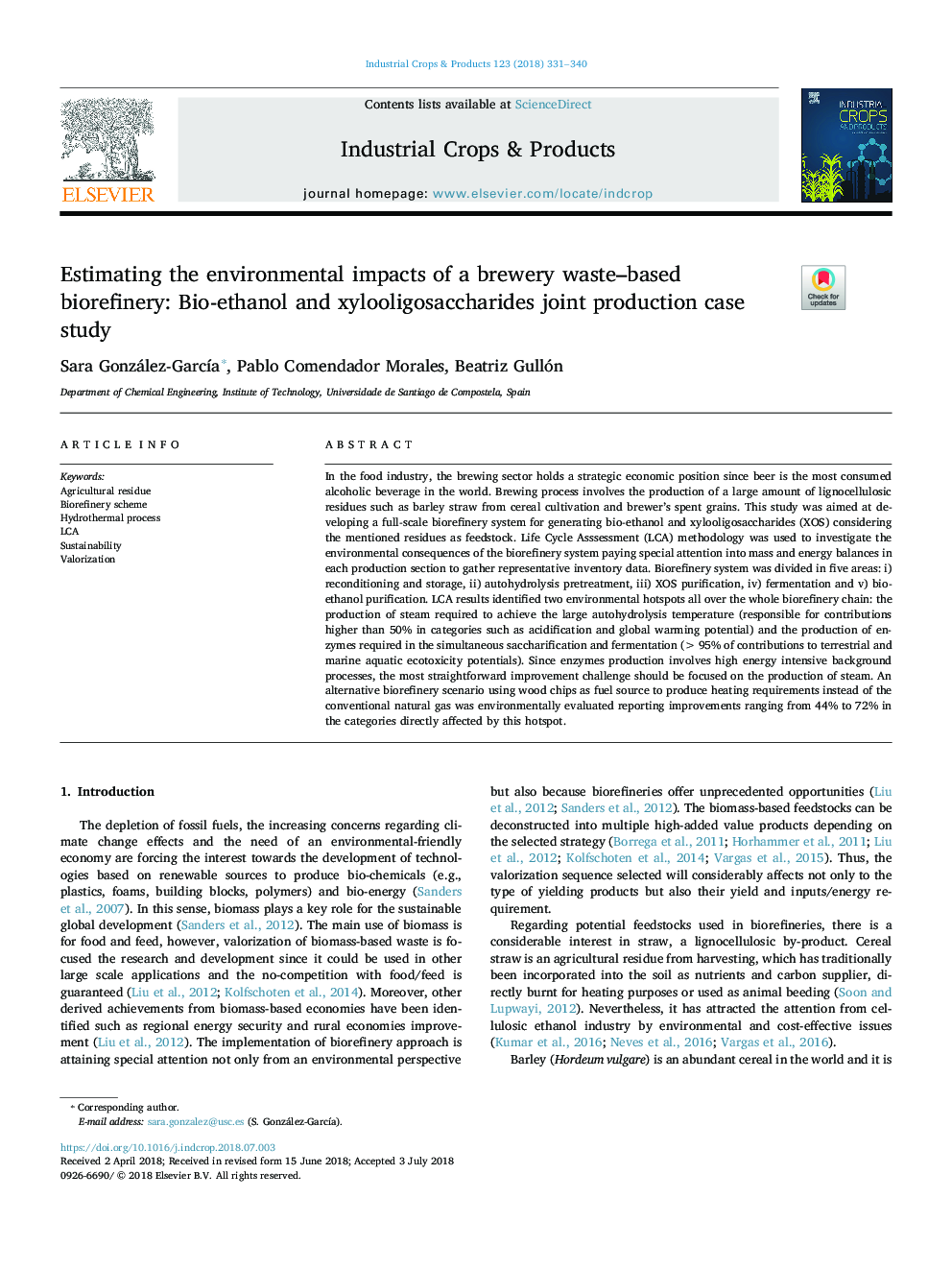| کد مقاله | کد نشریه | سال انتشار | مقاله انگلیسی | نسخه تمام متن |
|---|---|---|---|---|
| 10117044 | 1624787 | 2018 | 10 صفحه PDF | دانلود رایگان |
عنوان انگلیسی مقاله ISI
Estimating the environmental impacts of a brewery waste-based biorefinery: Bio-ethanol and xylooligosaccharides joint production case study
ترجمه فارسی عنوان
برآورد اثرات زیست محیطی زیست محیطی بر پایه زباله های آبجوسازی: مطالعه موردی تولید مشترک تولید بیو اتانول و زیلوالگوساکارید
دانلود مقاله + سفارش ترجمه
دانلود مقاله ISI انگلیسی
رایگان برای ایرانیان
کلمات کلیدی
موضوعات مرتبط
علوم زیستی و بیوفناوری
علوم کشاورزی و بیولوژیک
علوم زراعت و اصلاح نباتات
چکیده انگلیسی
In the food industry, the brewing sector holds a strategic economic position since beer is the most consumed alcoholic beverage in the world. Brewing process involves the production of a large amount of lignocellulosic residues such as barley straw from cereal cultivation and brewer's spent grains. This study was aimed at developing a full-scale biorefinery system for generating bio-ethanol and xylooligosaccharides (XOS) considering the mentioned residues as feedstock. Life Cycle Asssessment (LCA) methodology was used to investigate the environmental consequences of the biorefinery system paying special attention into mass and energy balances in each production section to gather representative inventory data. Biorefinery system was divided in five areas: i) reconditioning and storage, ii) autohydrolysis pretreatment, iii) XOS purification, iv) fermentation and v) bio-ethanol purification. LCA results identified two environmental hotspots all over the whole biorefinery chain: the production of steam required to achieve the large autohydrolysis temperature (responsible for contributions higher than 50% in categories such as acidification and global warming potential) and the production of enzymes required in the simultaneous saccharification and fermentation (>95% of contributions to terrestrial and marine aquatic ecotoxicity potentials). Since enzymes production involves high energy intensive background processes, the most straightforward improvement challenge should be focused on the production of steam. An alternative biorefinery scenario using wood chips as fuel source to produce heating requirements instead of the conventional natural gas was environmentally evaluated reporting improvements ranging from 44% to 72% in the categories directly affected by this hotspot.
ناشر
Database: Elsevier - ScienceDirect (ساینس دایرکت)
Journal: Industrial Crops and Products - Volume 123, 1 November 2018, Pages 331-340
Journal: Industrial Crops and Products - Volume 123, 1 November 2018, Pages 331-340
نویسندگان
Sara González-GarcÃa, Pablo Comendador Morales, Beatriz Gullón,
